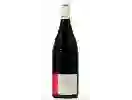
Winery BrussetLe Passage du Sud Cairanne
This wine generally goes well with beef, game (deer, venison) or lamb.
The Le Passage du Sud Cairanne of the Winery Brusset is in the top 70 of wines of Cairanne.
Food and wine pairings with Le Passage du Sud Cairanne
Pairings that work perfectly with Le Passage du Sud Cairanne
Original food and wine pairings with Le Passage du Sud Cairanne
The Le Passage du Sud Cairanne of Winery Brusset matches generally quite well with dishes of beef, lamb or game (deer, venison) such as recipes of marinated shrimp skewers with garlic, lamb chops à la champvallon or stuffed cabbage leaves.
Details and technical informations about Winery Brusset's Le Passage du Sud Cairanne.
Discover the grape variety: Couderc
Couderc noir is a grape variety that originated in France. It is a variety resulting from a crossing of the same species (interspecific hybridization). It produces a variety of grape specially used for wine making. It is rare to find this grape to eat on our tables. The Couderc noir can be found in several vineyards: Provence & Corsica, Rhône Valley, Languedoc & Roussillon, Loire Valley, Savoie & Bugey, Beaujolais, Armagnac.
Informations about the Winery Brusset
The Winery Brusset is one of of the world's great estates. It offers 27 wines for sale in the of Cairanne to come and discover on site or to buy online.
The wine region of Cairanne
The wine region of Cairanne is located in the region of Rhône méridional of Rhone Valley of France. Wineries and vineyards like the Domaine Boutinot or the Domaine J. Boulard produce mainly wines red, white and pink. The most planted grape varieties in the region of Cairanne are Mourvèdre, Roussanne and Clairette, they are then used in wines in blends or as a single variety.
The wine region of Rhone Valley
The Rhone Valley is a key wine-producing region in Southeastern France. It follows the North-south course of the Rhône for nearly 240 km, from Lyon to the Rhône delta (Bouches-du-Rhône), near the Mediterranean coast. The Length of the valley means that Rhône wines are the product of a wide variety of soil types and mesoclimates. The viticultural areas of the region cover such a distance that there is a widely accepted division between its northern and southern parts.
The word of the wine: Color
The colour of wines is characterized by its intensity and its nuances of hue. The intensity is specific to each grape variety, while the nuances of colour are linked to the evolution of the wine over time.














